CONFERENCE LOCATION
University of Limerick, Limerick, Ireland.
Registration will be in the atrium of the concert hall, pinned on this map: University Concert Hall, Limerick – Google Maps
Click here to download a pdf map of the University Campus.
The following buildings will be used for the conference, as labeled on the map linked above:
6 – Robert Schuman Building (sessions and catering)
11 – University Concert Hall (registration, sessions, and lunch pick-up in atrium)
13 – Main building (sessions and catering – lunch pick-up in Red Raisins Cafe)
28 – Kemmy Business School (sessions and catering)
A brochure from the University of Limerick on things to do in an around the campus, including dining options, bus maps, tourist attractions, and more: https://heyzine.com/flip-book/ULEventsSummerGuestBrochure
Accommodations:
For questions about on-campus accommodations, please contact: Conference and Events Office, University of Limerick, Limerick, E-mail: SASE2024@ul.ie Tel: +353 61 234178
If you have booked on-campus accommodations, note that breakfast is available 6:45-9am.
Getting there:
For general instructions on traveling to the University of Limerick campus by plane, train, car, bicycle, horse-drawn carriage, etc., go here: Travel & Transport | University of Limerick (ul.ie)
The University of Limerick is located 31km from Shannon International Airport. The cost of hiring a taxi from Shannon Airport to University of Limerick is approximately €45 – €60.
From Shannon you can also travel by bus to Limerick Train Station. Journey time from Shannon to Limerick, a distance of 24km, is about forty minutes on the bus (operates from 06.45 – midnight) while the journey time from Limerick to the University is about twenty minutes on the bus. The adult bus fare from Shannon Airport to Limerick City is approximately €10.00 one-way and €20.00 return. From the train station you have two choices; you may take a taxi to the University at a cost of €12.00 – €20.00, or you may walk 5 minutes to catch the bus from William Street in Limerick City to the University. There is a regular bus service between the campus and the city center. A bus ticket costs €2.00 each way. From the bus stop near the Centra shop on William St., take the bus for the University or Plassey (usually an Eireann Bus, N.304).
If you are driving to the campus, please note that parking outside of designated car parks will result in clamping. There is a charge of € 25.00 to have the clamp removed. There are sufficient signed public parking places on campus near the conference venue, some are free of charge, and some have barriers and are pay car parking.
There are also commercial coaches going directly from Dublin Airport to University of Limerick (bus stop is called UL Campus Stables). The journey time is approximately 3 hours and there are 8 buses each day. Please see the following link for further information: www.jjkavanagh.ie.
In addition, www.dublincoach.ie offer services from Dublin Airport to the University of Limerick. Coaches depart the airport every hour on the half hour with a stop at the Red Cow Luas Stop to change coach for the M7 Express Service to the University of Limerick. Prices start from €20 per person one way. Please see the following link for further information: www.dublincoach.ie.
Eireagle offers 8 coaches daily from Dublin Airport to Limerick City. Please see the following link for further information: www.eireagle.com.
Please note that these coaches either drop at the Stables bus stop (No. 16 on your map) or the flag poles (No. 1 on your map) at the entrance to the University of Limerick.
Trains: You can also take a train from the city of Dublin to the city of Limerick – note that you will need to get from the airport in Dublin to the city, and then from Limerick to the university campus: Dublin Limerick and Ennis Rail Fares (irishrail.ie)
Local taxi and bus service
The taxi and bus service are convenient to use within and around Limerick. Local taxi companies include Castletroy Cabs.
We recommend using the FreeNow Taxi App, which you can find here: https://www.free-now.com/ie/
Local bus service information can be found here: https://www.transportforireland.ie/getting-around/network-maps/limerick-city-bus-services/
MEMBERSHIP AND REGISTRATION
To pay membership dues or to register for the conference, please go here. Please note that you must be a SASE member to attend the conference, and that the registration deadline for the 2024 conference is May 31st 2024.
Discounted early-bird registration closes April 15th.
If you need to cancel your participation in the conference, please email Pat Zraidi at sasestaff@sase.org. Note the cancellation policy: SASE shall retain $50 of the registration fee in the event of a member cancelling conference participation within 30 days of the conference start date. Membership dues are non-refundable, except in the case of an unsuccessful visa application.
Important dates leading up to the 2024 conference:
22 September 2023: Deadline for mini-conference theme submissions
20 October 2023: Regular submissions open for the 2024 conference
19 January 2024: Hard submissions deadline (for conference and Early Career Workshop)
1 March 2024: Decisions announced
Mid-March 2024: Decisions announced on Early Career Workshop applications
30 March: Deadline for David Marsden best paper award submissions (details here)
1 April 2024: Preliminary conference program published
15 April 2024: Early bird registration deadline
2 May 2024: Deadline for travel grant applications (details here)
31 May 2024: Final registration deadline
10 June 2024: Full paper deadline (optional, but recommended for the following theme tracks: Networks D, E, H, I, J, L, N, P, and all mini-conferences)
18, 20, 21 June 2024: Virtual sessions
26 June 2024: Early Career Workshop
27-29 June 2024: Conference
VISAS
Click here for information on visa requirements and applications to enter Ireland.
If you need an invitation letter for a visa application, please contact SASE Executive Director Annelies Fryberger directly: saseexecutive@sase.org.
For the visa application, please use the following address for the local contact: University of Limerick Conference and Sports Campus, Campus Life Services, Limerick, Ireland. Contact person: Megan Tuite, +353 61 234178, Megan.Tuite@ul.ie.
BADGES
Badges can be picked up at registration, in the atrium of the concert hall: University Concert Hall, Limerick – Google Maps
Registration will open on the day before the conference, Wednesday June 26, from 2-7pm, and then every day of the conference, starting at 7:30am.
If you don’t manage to pick up your badge before your first session, don’t worry! Come see us when you can.
SESSIONS
General advice for session moderators and participants:
-
The moderator keeps the time, and time should be divided equally amongst all presenters, with equal time for presentations and Q+A for all participants.
-
Please make sure that there is a discussion after each presentation and not just a general discussion at the end (to ensure that everyone gets feedback).
-
Make sure that participants introduce themselves (name is sufficient) when they make a comment or ask a question.
-
Encourage everyone to participate in the discussion.
And a general note: if you move the furniture in the room, please move it back at the end of the session!
PRESENTATIONS
Speakers’ room: please email your presentation to SASEPres@ul.ie or go to the speakers’ room in EGO-10 (main building – follow the signs). Your powerpoint will be loaded directly onto the computer in the room where your presentation will take place.
Please note that you are not allowed to plug a USB key into the university computers – you need to either upload your presentation in advance in the speaker’s room, or bring your laptop to project.
Plan to arrive 15 minutes early to your session to make sure everything is ready and to test your presentation.
Generally speaking, if you have 4 presenters in your session, aim for a presentation of 12-15 minutes to leave time for discussion; with 5 presenters, aim for 8-10 minutes. For more specific instructions, best is to contact the organizers of your network/mini-conference, and/or the moderator of your session.
TECH & A/V
- For charging your equipment, bring an adapter (information on power plugs in Ireland here).
- If you have a mac, bring an adapter.
- Each room is equipped with a screen and a projector, with VGA and HDMI cables.
- There will be wifi and Eduroam available throughout the conference venue.
- If you need print services, go to Troy Print in the student center (N. 16 on the map) – it is next to the Spar grocery store in the courtyard (hours: Monday – Friday: 9.30am – 5:00pm, Closed for lunch: 1 – 2pm).
Wifi – Please go here to register for 7-day guest Wifi access on campus: https://www.ul.ie/itd/student-it-services/campus-wifi/guest-connection
CONFERENCE SCHEDULE
Please note: in order to make program design feasible, we ask that participants agree to no more than 4 active appearances in the program – an active appearance is anything that requires your presence at a specific session (acting as moderator/discussant, presenting, chairing, etc.).
| SASE Limerick Schedule |
| TIME SLOT |
June 27 |
June 28 |
June 29 |
| 07:30-17:15 |
Registration |
Registration |
Registration |
| 08:30-10:00 |
Sessions |
Sessions |
Sessions |
| 10:00-10:30 |
Break |
Break |
Break |
|
10:30-12:00
|
Sessions |
Sessions |
Sessions |
|
Featured panel/speaker
|
Featured panel/speaker
|
Featured panel/speaker |
| WAG General Assembly |
|
12:00-13:15
|
Lunch |
Lunch – provided by SASE
|
Lunch |
| Digit workshop on academic blogging |
WAG-sponsored session on book publishing, with Bristol University Press |
|
13:15-14:45
|
Sessions |
Sessions |
Sessions |
| Featured panel/speaker |
Featured panels/speakers |
Featured panels/speakers |
| 14:45-15:15 |
Break |
Break |
Break |
|
15:15-16:45
|
Sessions |
Sessions |
Sessions |
|
Featured panel/speaker
|
Featured panel/speaker |
| SS4RW |
| 16:45-17:15 |
Break |
Break |
Break |
|
17:15-18:45
|
Presidential Address and Awards Ceremony
|
Sessions |
Sessions |
| |
Featured panel/speaker |
SS4RW |
| 18:45-19:45 |
Welcome Reception |
Break |
SS4RW reception |
| 19:45-22:00 |
|
Conference Dinner
|
|
| |
|
|
CATERING
Please bring your own water bottle – there will be filling stations around campus. You can eat anywhere on campus, but please leave rooms as you found them, and if possible, bring trash back to a catering location. If the trash can in a classroom is full, please use a different one – they are only emptied at the end of the day, whereas the trash cans in the catering areas are emptied more frequently.
Lunches
Lunch for June 27 and June 29 could be purchased when you registered. Your badge will indicate whether you purchased lunch on those days or not.
On June 28th, lunch is free and available to all participants.
PICK-UP LOCATIONS: If your sessions are in the main building, please pick up your lunch at the catering area in that building. If your sessions are elsewhere, please pick up your lunch in the atrium of the university concert hall. When in doubt, follow the signs! Unclaimed lunches can be taken by anyone at the 14:45 break.
Welcome reception
Time: 6:45-7:45pm, Thursday June 27.
Location: University Concert Hall (where registration is located)
The welcome reception is open to all participants.
Conference dinner
Start time: 7:45pm, Friday June 28.
Location: The Stables (on the University of Limerick campus)
Please note: This is a ticketed event – you will be able purchase a ticket when you register for the conference (registration is here). Tickets are $60 (full rate) and $30 (reduced rate for non-OECD participants, students, and emeriti). Ticket includes a plated dinner and one drink.
Dining on Campus
Please see www.eastroom.ie for fine dining at the Plassey House on campus (reservations required).
There are many informal dining options (depending on existing group bookings):
- Stables bar open for meals each day until 9pm
- Pavilion Bar open for meals daily until 8.30pm
- The Terrace open for meals until 6pm
Dining off Campus
The Hurlers Pub
Located on the Dublin Road, Castletroy.
Fifteen Minute walk from UL Campus.
Kilmurry Lodge Hotel
Located in Castletroy, Limerick.
Fifteen Minute walk from UL Campus.
The Locke Burger
Burger restaurant located in Castletroy, Limerick.
Fifteen Minute walk from UL Campus.
Convenience Store, Pharmacies and Local Supermarket:
We have a Spar convenience supermarket on campus, which is open from Monday to Friday 8am – 5pm. This is in the Student Centre: https://goo.gl/maps/SGHxsct6zf9SnpF77
Aldi:
Located on the Dublin Road.
Twenty-six-minute walk from UL Campus.
By bus: 304. Depart from Stables bus stop (Courtyard UL), Arrival: Supermac’s, opposite to Aldi (two-minute walk).
Supervalu:
Located on the Dublin Road.
Twenty Minute walk from UL Campus.
Castletroy Park Total Health Pharmacy
Located in Castletroy, Limerick.
Ten-minute walk from the UL Campus.
Castletroy Pharmacy:
Located in Castletroy, Limerick.
Fifteen-Minute walk from the UL Campus.
CONFERENCE HOURS (excluding special events)
June 27: 8:30am – 6:45pm
June 28: 8:30am – 6:45pm
June 29: 8:30am – 6:45pm
SOCIAL MEDIA
Twitter: @SASE_meeting
Conference hashtag: #SASE2024
Facebook: https://www.facebook.com/SASEMeeting/
HELP
You can talk to the conference staff (they will be wearing SASE T-shirts) or come to registration at any time if you need assistance. We can also be reached via email at help@sase.org.
If you need to report an incidence of harassment or other violation of SASE’s code of conduct, please email saseexecutive@sase.org.
In the event of an emergency: dial 112 or 999.
WEATHER LIMERICK – JUNE
Ireland has a temperate climate, resulting in relatively cool summers. The mean daily temperature in June is 11 – 18°C. It is generally quite dry in June, but you may experience some rain, so come prepared with a rain coat and appropriate shoes!
OTHER IMPORTANT POINTS
- Ireland’s country code is +353.
- There is no bank located on campus. ATM machines are located in the student center on campus and at the UL Sports Arena. Generally, banking hours in Limerick City are 10.00 -16.00.
- Credit cards are widely used in Ireland and all leading credit cards are accepted.
- No smoking on campus. Please note that the campus at the University of Limerick is strictly non-smoking and non-vaping. This includes both inside and outside buildings and extends to the limits of the campus boundaries.
- Conference delegates are welcome to use the fitness facilities on campus. To do so, make an account on the following site and book a time slot: https://www.ulsport.ie/bookings/.
Questions? Email Annelies Fryberger at saseexecutive@sase.org.
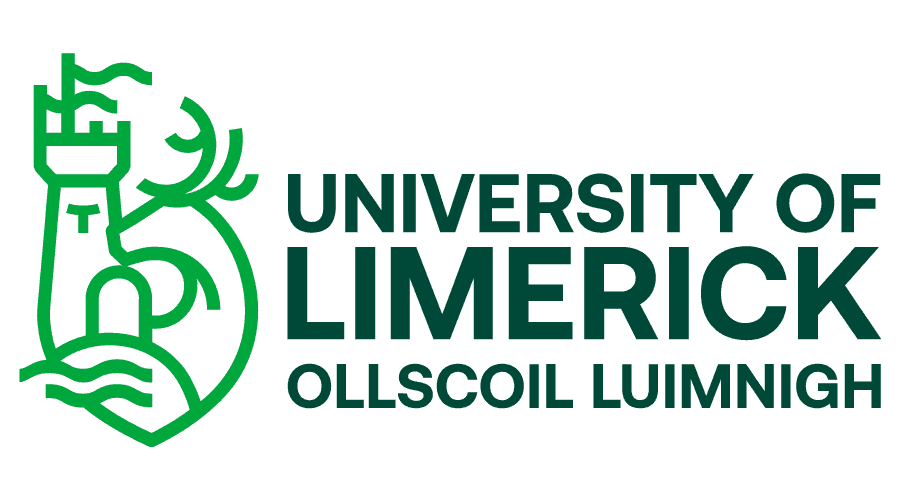







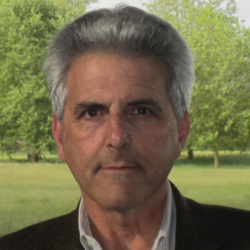


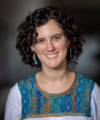
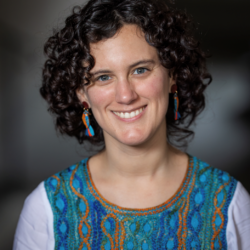


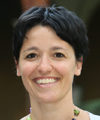
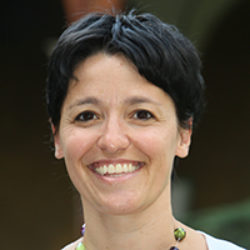





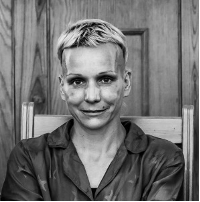





















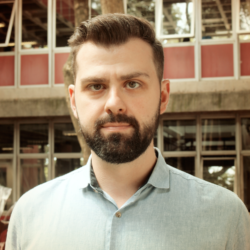



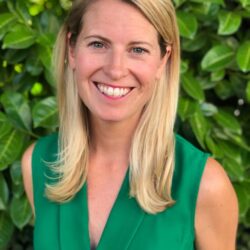








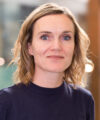
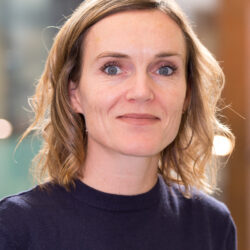



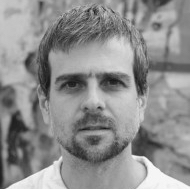
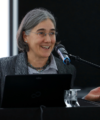
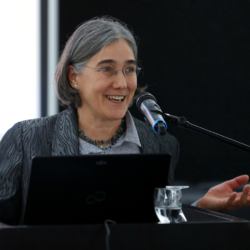



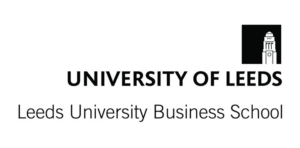

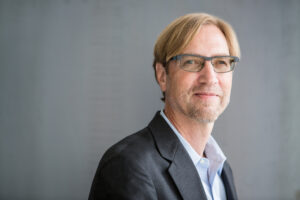


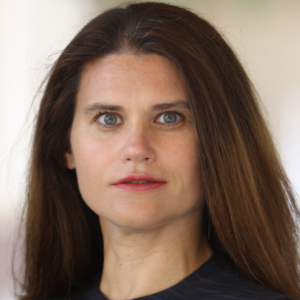
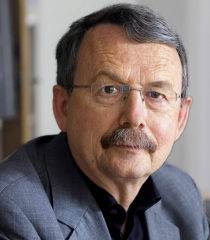
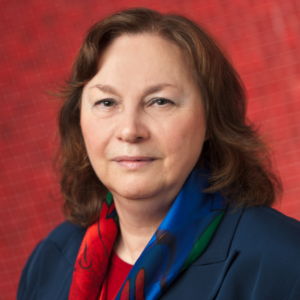


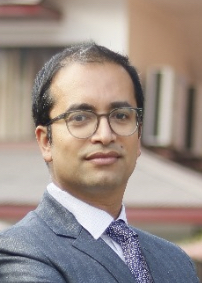

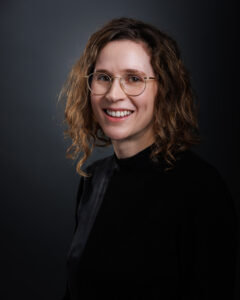
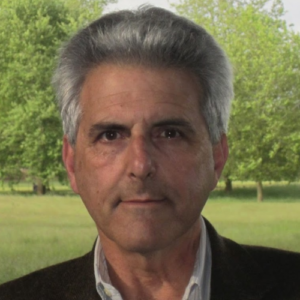

Social Sciences for the Real World
Note: the second roundtable will be followed by a one-hour reception, to be held in the Terrace.
Roundtable 1 – What role for social science academics in tackling the climate emergency?
Link to program: https://virtual.oxfordabstracts.com/#/event/4988/session/110162
16:15-17:45 Saturday, 29 June, 2024, FB028 – Foundation Building Basement (University Concert Hall)
Abstract
Academics have been said to be living a “double reality” (Thierry et al 2023). On the one hand, academics are aware of the existential nature of the threats posed by climate change. On the other, they are, for the most part, silent on the climate emergency in their teaching, research, publications, and public engagement. What does it take to break such “climate silence” (Scoville and McCumber 2023), and to do what? Some, like climate scientist Michael Mann, call for those who have an audience to use that privilege to raise awareness and trigger action. Others, like Latour, have called on academics to support all who are striving to live back “down to Earth”, by working with them rather than telling them what to do (Latour 2018).
Moderator: Dr Janina Grabs, University of Basel
Academic participants:
Practitioner participants:
Roundtable 2 – What should be regulation’s role in the Anthropocene?
Link to program: https://virtual.oxfordabstracts.com/#/event/4988/session/110163
Abstract
Regulation has been an enabler of the Great Acceleration (Steffen et al. 2015) that has put Earth on its current path of growing uninhabitability. In spite of calls to rethink regulation and policy design on the basis of planetary boundaries (Parker and Haines 2018; Tsermer et al. 2019), regulatory scholarship and regulatory practice remain dominated by the same tropes of the past decades: economism (Short 2023), risk-based frameworks, technological neutrality, etc. Meanwhile, the rapidly multiplying extremes of a broken climate and crumbling biodiversity have begun wiping out decades of progress on housing, working conditions, public health, food security, all of which are regulated issues.
Moderator: Julien Etienne, independent policy consultant
Academic participants:
Practitioner participants: